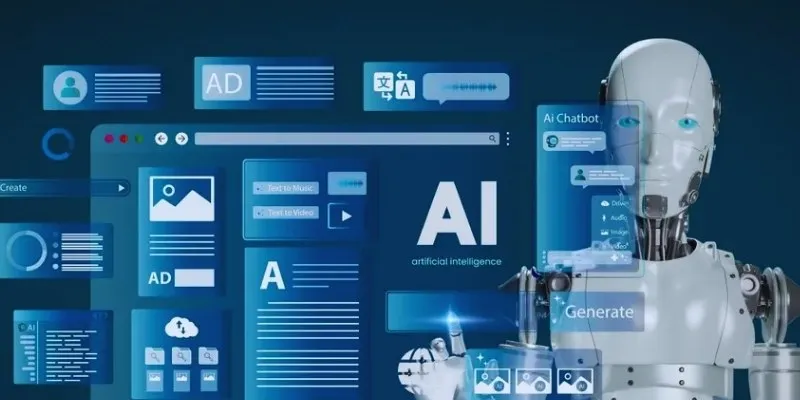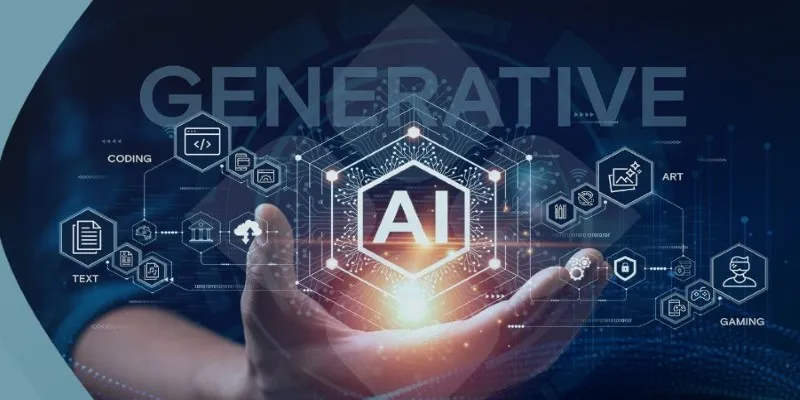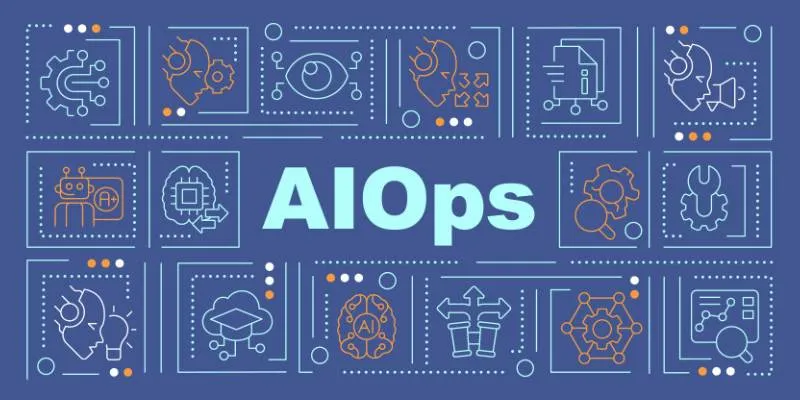In today’s digital economy, data serves as a crucial foundation, much like oil did for businesses in the past. However, raw data holds limited value unless it is refined, interpreted, and effectively applied. This is where generative artificial intelligence (AI) comes into play, transforming data into innovative ideas, automation, and insightful analysis. Many companies now utilize AI-driven models to enhance consumer experiences, improve decision- making, and boost efficiency. The swift advancement of AI-powered business intelligence is reshaping entire industries.
Businesses that overlook artificial intelligence risk falling behind. AI enables companies to create personalized content, streamline operations, and optimize resource management. From healthcare to finance, AI is revolutionizing every sector. This article explores how generative AI drives innovation, accelerates automation, and transforms businesses.

The Role of Data in the Digital Economy
Data forms the backbone of modern businesses. Every interaction, transaction, and online activity generates valuable data. However, without tools to extract insights, raw data remains useless. AI-driven data processing enables businesses to analyze trends, identify patterns, and make evidence-based decisions. Companies accumulate vast amounts of data from customer interactions, sales records, and market trends. AI-powered tools convert this data into actionable insights, enhancing corporate strategies and boosting efficiency.
AI-driven analytics power sectors such as retail, healthcare, and finance. Retailers utilize AI to predict consumer preferences; healthcare providers use it for disease diagnosis; banks leverage AI to prevent fraud. Companies that adopt AI-powered data processing stay ahead, streamline processes, and drive growth in a competitive market.
Generative AI: Turning Data into Actionable Insights
Generative artificial intelligence goes beyond mere data analysis; it generates new ideas, solutions, and content. Businesses use advanced AI-driven automation to create text, graphics, and software code, enabling faster innovation and improved problem-solving. One of AI’s key advantages is its ability to predict future trends. AI-driven content creation enhances marketing campaigns, while AI-powered recommendation engines personalize customer experiences. Anticipating changes allows businesses to optimize operations.
AI-powered business intelligence impacts various sectors. Manufacturers optimize supply chains, financial firms automate risk assessments, and healthcare providers use AI for disease identification. AI enables businesses to shift from reactive approaches to proactive innovation. In creative fields, AI tools produce exceptional visuals, music, and written content. Companies effectively engage consumers using AI-powered marketing solutions. Generative AI is essential for modern businesses as it enables creation rather than mere processing.
AI and Automation: Redefining Business Efficiency
Automation has evolved beyond simple tasks. Businesses streamline decision- making, reduce costs, and increase productivity with advanced AI-driven automation. Today, chatbots, predictive maintenance systems, and data-driven marketing campaigns operate under AI. Companies leverage AI to create personalized marketing materials, monitor audience engagement, and improve customer retention. AI systems provide deep insights into consumer behavior, enabling businesses to design more targeted marketing strategies, thereby enhancing brand loyalty and conversions.
AI-powered automation also transforms customer service. AI-driven virtual assistants answer inquiries, process orders, and resolve issues promptly, enhancing user experiences and reducing human workload. Businesses implementing advanced AI-driven automation improve customer satisfaction and efficiency. In industrial settings, AI reduces downtime, predicts equipment failures, and streamlines manufacturing processes.

How AI Enhances Decision-Making and Strategy
In business, making informed decisions is crucial. AI-powered business intelligence offers real-time insights, allowing companies to respond quickly to market changes. AI models process large volumes of data, identify significant trends, and deliver accurate project outcomes. AI-enabled risk analysis helps financial organizations detect fraud and assess investment opportunities. Through transaction monitoring and alerting of suspicious activities, AI enhances security.
AI also enhances strategic planning. Before launching new business models, companies conduct simulations created by AI. AI-driven forecasting systems evaluate economic conditions, guiding companies in making sound financial decisions. Using AI accelerates and enhances accuracy in decision-making. AI- driven customer analytics provide businesses with a better understanding of audience behavior. AI predicts purchase patterns, allowing companies to refine their marketing efforts.
AI in Personalization: Enhancing Customer Experiences
The customer experience is a key driver of business success. AI-powered personalization boosts user engagement through tailored recommendations, offers, and services. AI-enabled data analysis helps businesses understand consumer preferences and deliver unique experiences. Retailers use AI and browsing behavior to suggest products, while streaming services employ AI to recommend relevant content. AI-powered chatbots provide instant customer service and real-time problem resolution.
In e-commerce, AI-driven personalized advertising increases sales conversion. AI-supported sentiment analysis helps companies better understand customer feedback, guiding their marketing strategies. AI-driven dynamic pricing adjusts product costs based on demand and competition. Personalized travel and hospitality offerings also benefit from AI-powered customization. AI-driven booking systems recommend destinations, hotels, and events based on consumer behavior.
The Future of AI and Its Role in Business Growth
The ongoing evolution of artificial intelligence is shaping the future of business. AI-powered business intelligence allows companies to gain insights that drive profitability, efficiency, and innovation. Predicting market trends, optimizing operations, and enhancing customer engagement will increasingly rely on AI. AI-driven automation will continue to transform industries, impacting data management, fraud detection, and cybersecurity.
The ethics of AI will become increasingly important. Businesses must focus on the transparent use of AI to ensure compliance, security, and fairness. The implementation of responsible AI will determine a company’s success. Organizations that prioritize ethical considerations while leveraging AI- driven strategies will lead the future. Companies investing in AI-driven solutions will maintain a competitive edge as generative AI evolves.
Conclusion
Generative AI is revolutionizing the way businesses operate, innovate, and compete. It streamlines processes, converts raw data into valuable insights, and enhances consumer interactions. Companies embracing AI-powered data processing unlock new opportunities for growth and efficiency. AI-powered automation is no longer a luxury but a necessity for success. Industries adopting advanced AI-driven automation will experience improved security, accelerated development, and more informed decision-making. AI-driven innovation will reshape industries, reinvent business models, and drive global growth. Those who adapt will lead, while those who resist may struggle to catch up.
 zfn9
zfn9























